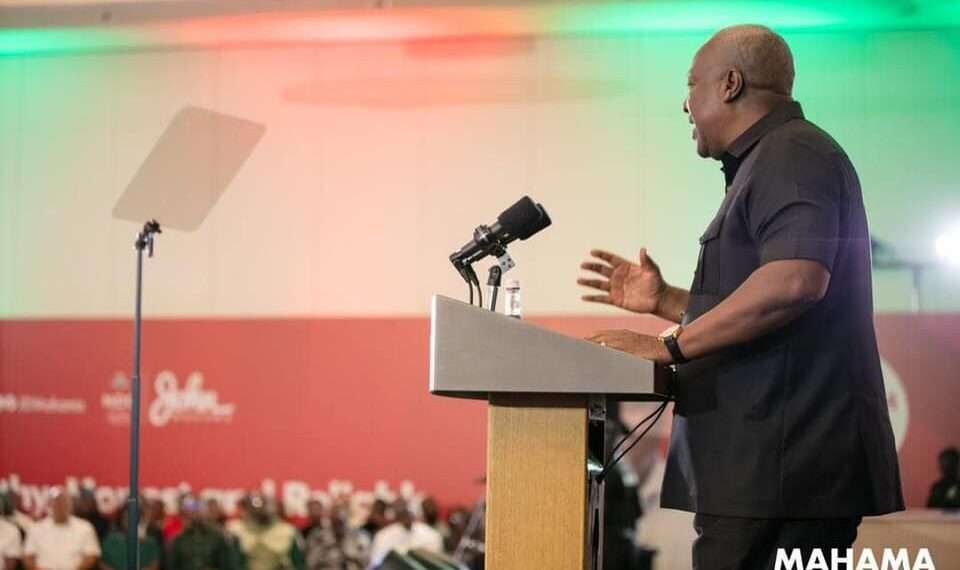Hon. Mavis Nkansah-Boadu, Member of Parliament for Afigya Sekyere East Constituency, has criticized President John Dramani Mahama for failing to fulfil his 2024 campaign promise of ensuring that 30% of his cabinet members were women.
She described this as a disappointing setback for gender equality and women’s representation in Ghana’spolitical leadership.
“Despite his promise, only two women were appointed out of nineteen cabinet members, a mere 10.5%. This falls significantly short of his campaign promise and undermines efforts to promote women’s representation in leadership positions”.
Hon. Mavis Nkansah-Boadu, Member of Parliament for Afigya Sekyere East Constituency
President John Dramani Mahama is seen as a champion of gender equality, and this was deepened by his nomination of Vice President Professor Naana Opoku-Agyemang as the running mate for the 2024 general elections.
His pledge to allocate 30% of cabinet positions to women was seen as a crucial step toward bridging the gender gap in governance.
However, his eventual cabinet appointments, with only two women occupying ministerial positions, exposed a stark contrast between his promise and actions.
This, Hon. Nkansah-Boadu asserted, raises concerns about the President’s commitment to fulfilling his pledges, especially regarding women’s empowerment.
“The underrepresentation of women in leadership positions is a persistent issue in Ghana, and President Mahama’s failure to fulfil his promise only worsens this problem,” she lamented.

Gender Parity and Political Representation in Ghana
Ghana has long struggled with gender parity in governance. Despite women comprising a significant portion of the population, their representation in political leadership has remained low.
While successive governments have made commitments to improve this situation, meaningful progress has been slow.
President Mahama’s failure to meet his 30% gender representation target is reflective of the broader challenge of translating political promises into tangible action.
Over the years, women’s rights advocates and civil society organizations have called for deliberate policies to ensure greater female representation in governance structures.
According to data from the Inter-Parliamentary Union (IPU), as of 2024, women constitute only 14.5% of Ghana’s Parliament, a statistic that underscores the challenges women face in attaining political leadership roles. If deliberate efforts are not made, gender parity in governance will remain elusive.
Ghanaian women have long proven their competence and capability in governance, yet systemic barriers, including political party structures, continue to limit their advancement.
Some political analysts note that President Mahama’s failure to appoint more women to his cabinet was a missed opportunity to set a precedent for future governments.
Given that he had control over cabinet appointments, many insist he could have used his power to ensure greater female representation.
While Ghana has made some progress in improving women’s representation, much remains to be done. Gender advocacy groups continue to push for policies that will institutionalize gender quotas in leadership positions.
One of the proposed solutions is the strict enforcement of the Affirmative Action (Gender Equality) Act, 2024 which was passed into law under the previous NPP administration.
The Act mandated a 30% minimum percentage of political leadership positions to be occupied by women, from 2024 to 2026 ensuring that gender inclusivity is not left to the discretion of political leaders.
Hon. Mavis Nkansah-Boadu’s call for greater accountability on gender representation resonates with many Ghanaians who believe that political leaders should be held to their campaign promises.
For Ghana to achieve true gender equality, leaders must move beyond mere rhetoric and take concrete steps to empower women in governance.
READ ALSO: Strengthening Fuel Security Amid Green Transition Goals





















